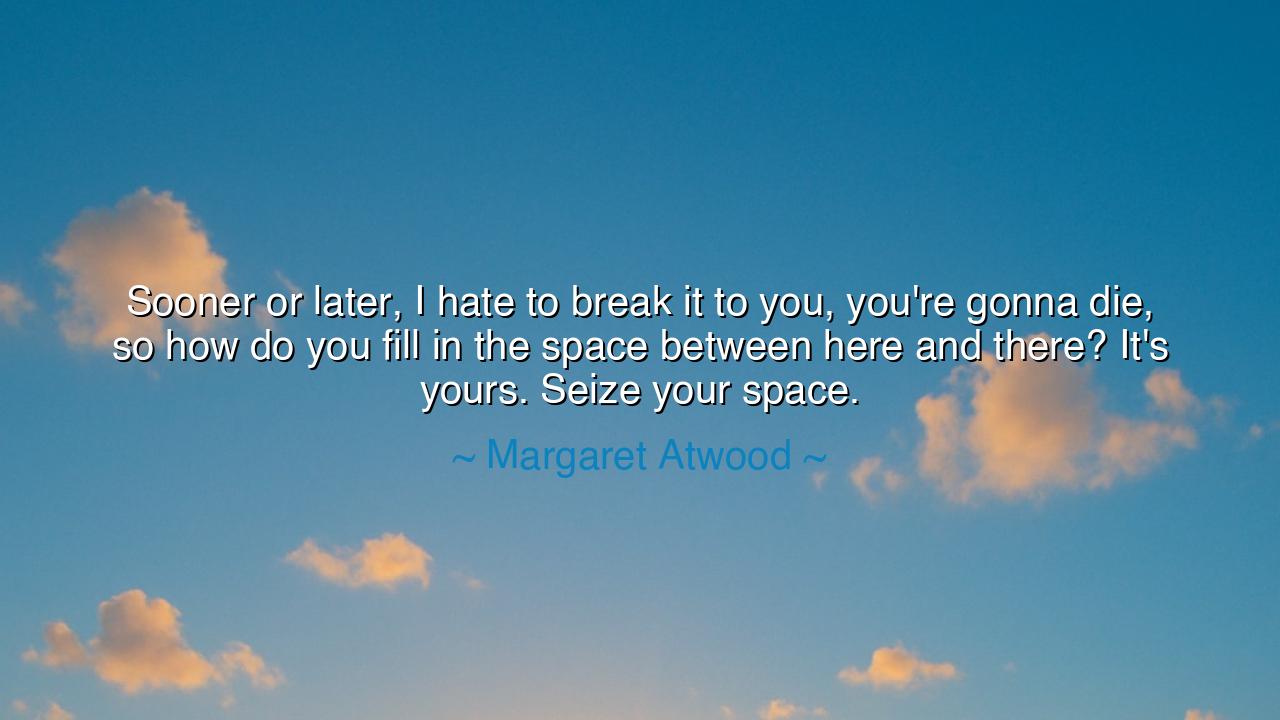
Sooner or later, I hate to break it to you, you're gonna die, so
Sooner or later, I hate to break it to you, you're gonna die, so how do you fill in the space between here and there? It's yours. Seize your space.






Margaret Atwood, with the candor of a prophetess, has spoken words that pierce through the illusions of life: “Sooner or later, I hate to break it to you, you’re gonna die, so how do you fill in the space between here and there? It’s yours. Seize your space.” These words are not offered to soothe but to awaken. For she reminds us of the truth all men know yet all men seek to forget—that death waits for us all. It is not the end that should trouble us, for it is certain, but the space between, the stretch of years we are given, fragile and fleeting. That is the battlefield where destiny is shaped.
The ancients understood this. They carved into stone the words memento mori—“remember you must die.” Not to plunge men into despair, but to rouse them from slumber. For the man who knows he will die lives differently: he does not squander hours, he does not postpone his dreams, he does not bow to fear. Instead, he fills the space of his days with courage, creation, and love. He seizes his time, lest it be stolen by hesitation. This is the wisdom Atwood offers: not to dread the end, but to sanctify the middle.
Consider the life of Leonardo da Vinci. He knew, as all men know, that death would come; yet he filled his space with relentless curiosity. He painted the mysteries of the human soul, engineered marvels centuries ahead of his time, and studied the flight of birds as though eternity depended upon it. Though his body was mortal, his space became vast, overflowing with beauty and invention. This is the triumph of one who seizes his allotted time rather than letting it pass like water through open hands.
In contrast, think of those who live under the shadow of fear, waiting endlessly for the “right moment.” They postpone joy, delay creation, stifle love, imagining they have endless days ahead. But when the final hour comes, they find their space empty, their years filled with hesitation rather than life. Atwood’s words strike at this folly: she breaks the illusion that time is abundant, reminding us that the only true abundance lies in action, not delay.
The lesson, then, is simple yet stern: the space between birth and death is yours alone. Not your master’s, not your neighbor’s, not the critic’s or the crowd’s—it is yours. To live timidly, always obeying, always shrinking, is to let others write upon your days. To live boldly, creating, speaking, daring, is to claim your rightful inheritance. This does not mean recklessness, but fullness: to leave no song unsung, no kindness unoffered, no dream forever locked in the heart.
Therefore, take action. Each day, ask yourself: how will I fill my space today? Will I create something that outlives me, even if small? Will I love someone without fear? Will I step into the light instead of hiding in the shadows? Do not wait for permission, for the years are not yours to hoard. They are yours to spend—wisely, courageously, beautifully. In spending them fully, you seize them.
So let these words echo through the generations: you will die, yes—but between here and there lies your kingdom, your canvas, your garden. Seize your space. Shape it with your hands, your voice, your dreams. Do not give it away to fear or to others who would waste it for you. For the greatest tragedy is not death itself, but to arrive at death having never lived.






AAdministratorAdministrator
Welcome, honored guests. Please leave a comment, we will respond soon